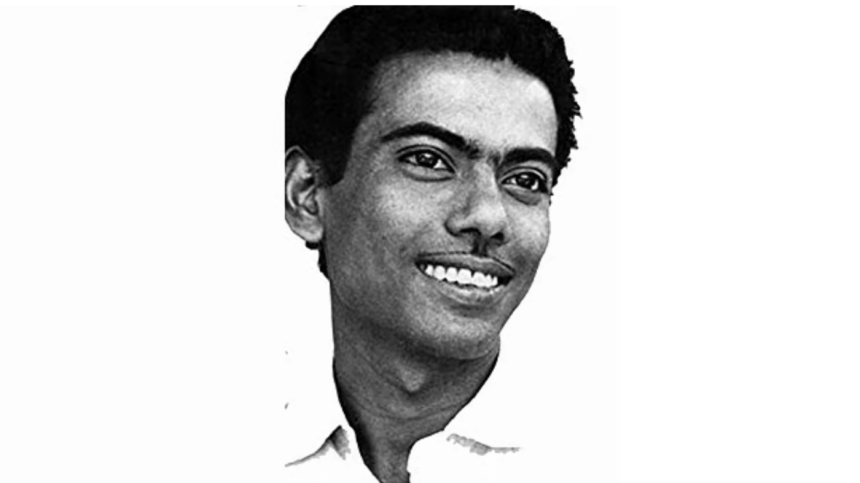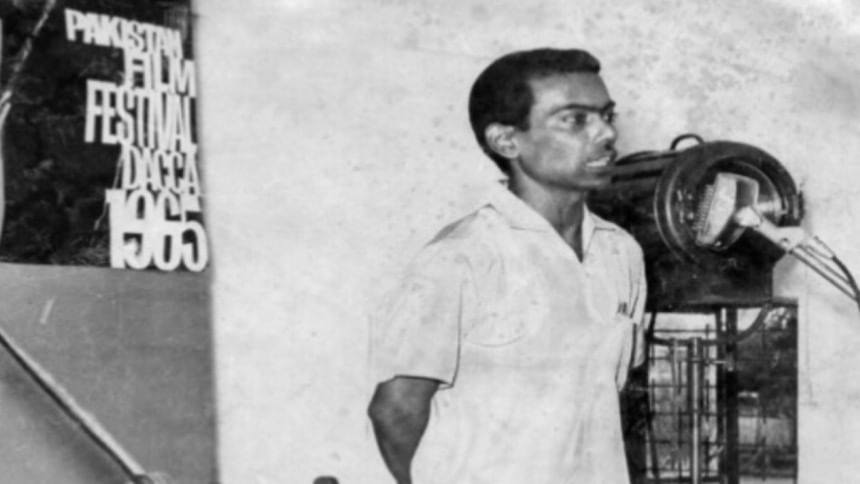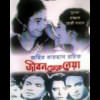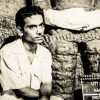Zahir Raihan’s legacy honoured on 90th birth anniversary

The 90th birth anniversary of eminent filmmaker and writer Zahir Raihan was observed yesterday through a discussion and film screening organised by the Zahir Raihan Film Institute at a convention hall in Dhaka.
The event, titled "The Philosophy and Struggle of Filmmaker Zahir Raihan in the Bengali Rights Movement", began with floral tributes at his portrait, followed by a solo musical performance by Ashiqur Rahman and a recitation by Belayet Hossain from Raihan's story "Shomoyer Proyojone."
Family members including his son Onol Raihan, along with Mahir Shahriar Reza, Rustam Ali Khokon, Bidhan Ribeiro, and Mahmud Selim, were present.
Institute director and filmmaker Pradip Ghosh recalled the historic impact of Raihan's 1970 classic "Jibon Theke Neya".

"When military rulers delayed its release during the mass uprising of 1969, people took to the streets demanding the right to watch a film. That one film electrified the struggle for Bangladesh's independence," he said.
Speaking at the event, Udichi's acting president Mahmud Selim described Raihan as "a brilliant son of Bengal who applied his political philosophy to cinema." He added: "While we fought on the battlefield during the Liberation War, Zahir Raihan carried his camera to refugee camps to show the world the genocide carried out by the Pakistani army. His immortal documentary Stop Genocide remains a testament to Bangladesh's birth."
Following the discussion, Raihan's documentary "Stop Genocide" was screened.
Born on 19 August 1935 in Majupur village of Feni, Zahir Raihan was not only a celebrated filmmaker but also a novelist and journalist. His literary works include "Haajar Bochor Dhore", "Arek Falgun", "Borof Gola Nodi", "Ar Koto Din", and "Trishna". His novel "Haajar Bochor Dhore" won the Adamjee Award in 1964, and he was posthumously honoured with the Bangla Academy Award in 1972 for his contributions to Bengali literature.
Raihan began his film career in 1961 with "Kokhono Asheni", later directing classics such as "Jibon Theke Neya" and the Liberation War documentary "Stop Genocide". He was also active in politics during his student years and was imprisoned multiple times, including during the Language Movement in 1952.
Tragically, on 30 January 1972, while searching for his missing brother Shahidullah Kaiser, Raihan disappeared in Mirpur and was never found. His family believes he was killed there. Despite his untimely death, Zahir Raihan's legacy continues to inspire generations.

 For all latest news, follow The Daily Star's Google News channel.
For all latest news, follow The Daily Star's Google News channel. 









Comments